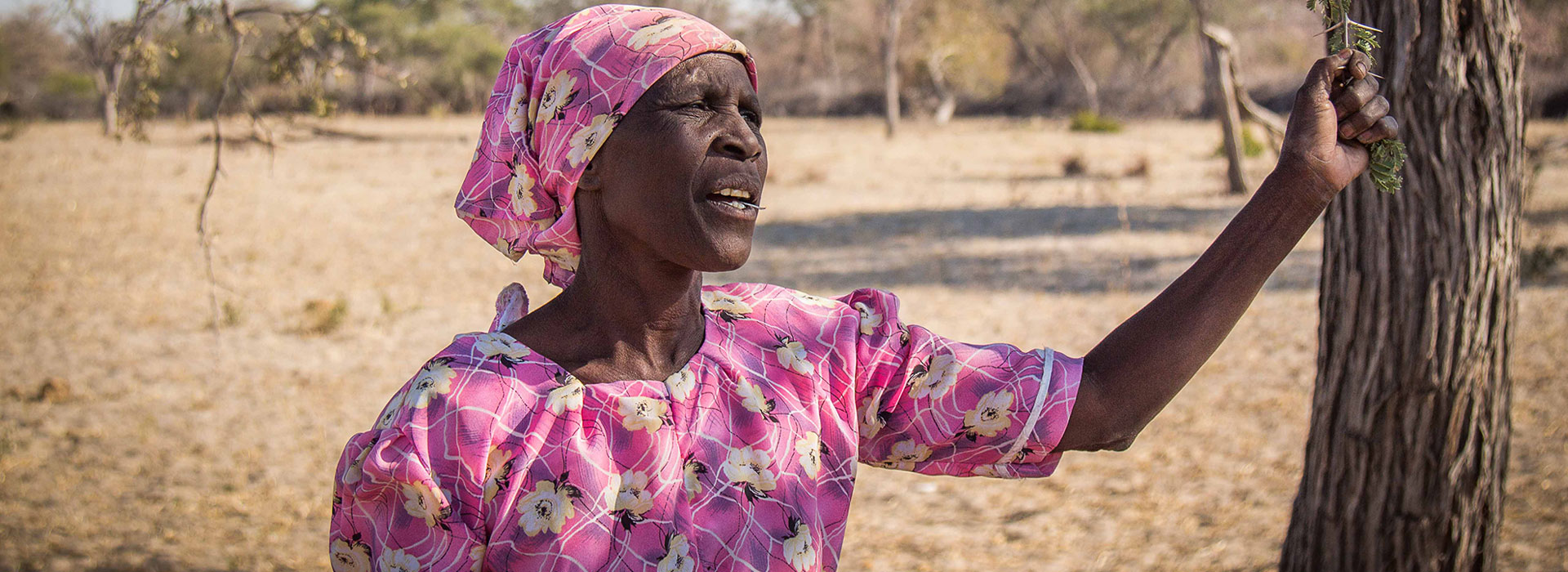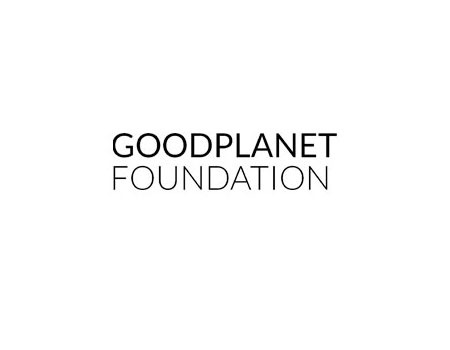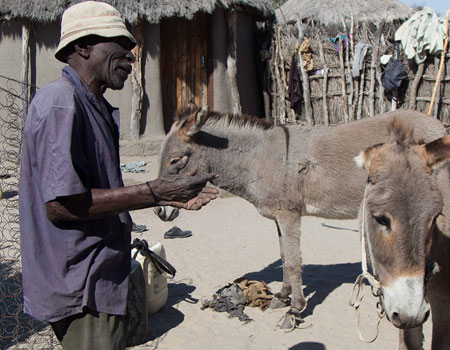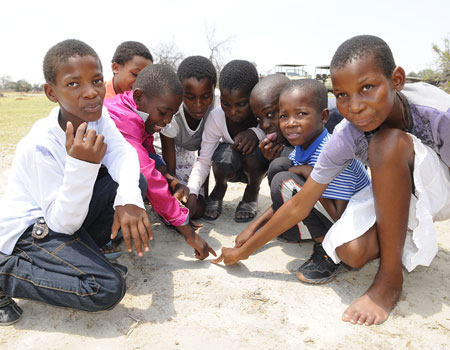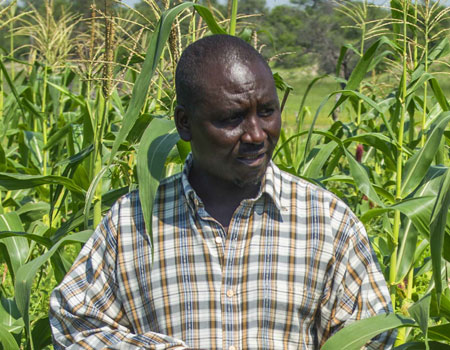COMMUNITIES
Elephants for Africa Community Co-Existence Project: Enhancing human-wildlife coexistence in a rural farming community.
An Elephants for Africa project supported by the GoodPlanet Foundation thanks to Omega.
One of the most rapidly increasing threats to elephants is conflict with humans. In turn, rural farmers in regions bordering protected areas suffer a great deal from the effects of the elephants' crop-raiding. Therefore, mitigating the conflict that arises between people and elephants is vital for the continued coexistence of each.
Elephants for Africa’s project builds on our existing educational work in the rural village of Khumaga. Khumaga borders the Makgadikgadi Pans National Park, which is separated from the community land by the presence of the Boteti River, with the national park to the east and the community farming lands to the west. This project provides a programme of theoretical and practical support for local farmers who suffer one of the highest rates of human-elephant conflict in Botswana at this interface. The raiding of subsistence crops by elephants threatens both the livelihoods of the farmers and the lives and future protection of this vulnerable species.
Our Community Coexistence Projects deliver a range of educational and practical information to farmers and local school children, which aims to increase ecological understanding, empower local people with knowledge of how to reduce crop-raiding, trial existing conflict mitigation measures that have been used elsewhere, provide materials to enable farmers to implement these measures and to increase the use of conservation agricultural methods to improve overall yields. Our dedicated Community Officer is able to advise and disseminate information to farmers, and as a farmer himself can actively demonstrate these techniques to others. In the local primary school our involvement with Environmental Club members means we will be able to target the next generation of farmers, conservationists and researchers. We are working with them to deliver a program that engages them in conservation-themed educational activities that focus on increasing human-wildlife coexistence.
One of the most rapidly increasing threats to elephants is conflict with humans. In turn, rural farmers in regions bordering protected areas suffer a great deal from the effects of the elephants' crop-raiding. Therefore, mitigating the conflict that arises between people and elephants is vital for the continued coexistence of each.
Elephants for Africa’s project builds on our existing educational work in the rural village of Khumaga. Khumaga borders the Makgadikgadi Pans National Park, which is separated from the community land by the presence of the Boteti River, with the national park to the east and the community farming lands to the west. This project provides a programme of theoretical and practical support for local farmers who suffer one of the highest rates of human-elephant conflict in Botswana at this interface. The raiding of subsistence crops by elephants threatens both the livelihoods of the farmers and the lives and future protection of this vulnerable species.
Our Community Coexistence Projects deliver a range of educational and practical information to farmers and local school children, which aims to increase ecological understanding, empower local people with knowledge of how to reduce crop-raiding, trial existing conflict mitigation measures that have been used elsewhere, provide materials to enable farmers to implement these measures and to increase the use of conservation agricultural methods to improve overall yields. Our dedicated Community Officer is able to advise and disseminate information to farmers, and as a farmer himself can actively demonstrate these techniques to others. In the local primary school our involvement with Environmental Club members means we will be able to target the next generation of farmers, conservationists and researchers. We are working with them to deliver a program that engages them in conservation-themed educational activities that focus on increasing human-wildlife coexistence.

